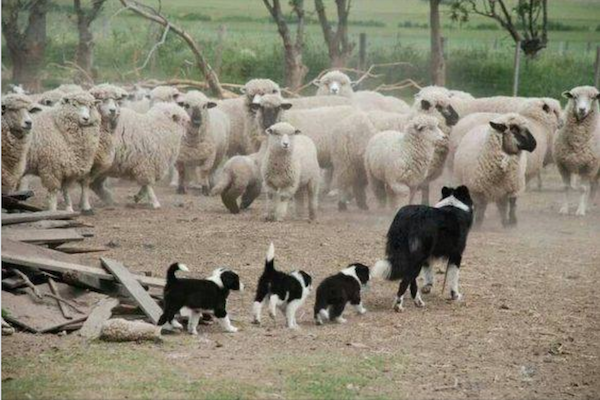
Today is Take Your Child to Work Day, a day that got its start in 1993 when Ms. Foundation for Women president, Marie Wilson. wanted to give girls in the United States a glimpse into the working world. In 2003, the day’s official title was changed to Take Our Daughters and Sons to Work Day, but companies that had been participating in the program all along had been inviting boys to take part, and over time, the name of the day morphed into, “Take a Child to Work Day.”
Shoulder shrug. Shepherds, farmers, and ranchers have been doing a canine version of this day for centuries by having puppies watch older dogs work.
Science looked at this and gave the concept several names, including “observational Learning,” “social learning” or “allelomimetic behavior.” There’s been little scholarly disagreement that a dog’s social nature makes him exceptionally aware of the behavior of others thereby shaping his own behavior. Puppies, in fact, are genetically programmed to follow and copy others of their kind.
An early experiment conducted by Adler and Adler in 1977 found that puppies who watched other puppies learn to pull a food cart into their cages by an attached ribbon were considerably faster at the task when later given the opportunity to do it, themselves. At 38 days of age, the “demonstrator” puppies took an average of 697 seconds to succeed, while the observers succeeded in an average of 9 seconds. Later, a study conducted by Slabbert and Rasa in 1997 found that puppies between the ages of 9-12 weeks who watched their narcotics-detecting mothers at work generally proved more capable at learning the same skills at six months of age than control puppies of the same age who never saw their mothers working, at all.
Among the bits of advice that experienced ranchers, shepherds, and farmers give about bringing in a youngster who will be expected to work is to let them watch an experienced dog at work, and then to train them with the older dog. Much of what you see in the video below is instinct, but it would be wrong to discount the impact of having watched Mom or Dad on the job:
